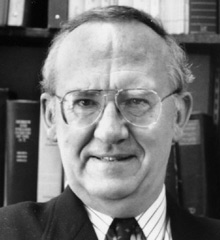Background of Proverbs
Revised by Diane Jacobson (02/24)
The short sayings (the bulk of the material in chapters 10-30) probably originated as folk wisdomWisdom encompasses the qualities of experience, knowledge, and good judgment. The Old Testament book of Proverbs, which sometimes invokes a Woman as the personification of Wisdom, is a collection of aphorisms and moral teachings. Along with other biblical passages, it teaches, “The fear of the… More, generated, preserved, and passed on in the spheres of the clan and the family. Every culture (including our own) is concerned with passing on advice to the next generations about how to get along in the world. In the ancient world this preserving and passing on of such wisdom took place within the family and the tribe; in our day we might speak of the family and various educational institutions. As this folk and family wisdom was passed on, it began to be written down and collected, arranged according to content or form or other criteria that are not clear to us. Such collections became the beginnings of the Book of Proverbs. The book is framed by essays and longer poems (Proverbs 1-9 and 31).
These collections seem to have been used in some sort of school. Several hints point in this direction. When young DavidSecond king of Israel, David united the northern and southern kingdoms. More arrived at the court of SaulThe first king of Israel. More, for example, he was described as already educated, “skillful in playing, a man of valor, a warrior, prudent in speech, and a man of good presence; and the LORD is with him” (1 SamuelThe judge who anointed the first two kings of Israel. More 16:18). The various rhetorical forms found in Proverbs also point to the use of these materials in teaching situations.
It appears that the materials in Proverbs also functioned as part of an educational program in the royal court. Just as MosesProphet who led Israel out of Egypt to the Promised Land and received the law at Sinai. More was associated with biblical law and David with the psalms, biblical wisdom materials are associated with King SolomonThird king of Israel who was known for wisdom and building the first Temple. More (Proverbs 1:1; 10:1; 25:1), who ruled over Israel from about 961 to 922 BCE. Solomon was an internationalist who held David’s empire together (1 Kings 4:20-28). Such an empire required a huge staff just to keep it functioning. There was no doubt some sort of “internship” or training program for young people being prepared to take positions in Jerusalem. Hints throughout Proverbs suggest that the material functioned in such a manner. For example, directions about how to behave properly when sitting down to eat with royalty assume that those receiving this instruction would one day have such an opportunity (Proverbs 23:1-3).
